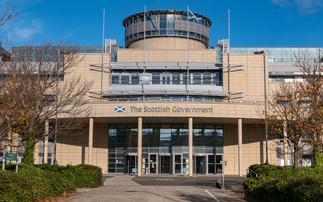Charlotte Finlay explains how the city of Ahmedabad in Gujurat has reduced loss of life by preparing people for extreme temperatures
It's starting to feel like the end of summer in London, but whilst we enjoyed some sunshine here in the UK, India suffered from one of the worst heat waves in recent history. Temperatures have reached 50 degrees and over 1,700 people have died. As well as immediate deaths from heat stress there was an increasing threat of severe drought as the country waited for the monsoon rains. Media coverage of the crisis often doesn't make the link with climate change and presents the Government of India as largely unprepared.
However, this is not the case in the city of Ahmedabad, Gujurat. The PwC-led Climate and Development Knowledge Network (CDKN) has been working for the last three years in partnership with the Natural Resources Defence Council (NRDC) and the Indian Institute of Public Health (IIPH), a coalition of academic, health and environmental groups to develop an Extreme Heat Action Plan.
This plan - centred around enhanced public awareness of extreme heat, an early warning system, and heat preparedness planning - swings into action as the temperature rises and works together with the emergency services, health services and city authorities. The city is rapidly improving public health infrastructure in response. Ambulances are now strategically located where the highest number of calls for help during heat waves are issued. Hospitals now receive warnings when extreme temperatures are forecast and have extra ice packs on hand. And drinking water stations and public awareness materials are distributed throughout the city.
In the most recent month-long heat wave, Ahmedabad has so far registered only seven deaths. This is in stark contrast to a heat spike in 2010 when 1,300 died across the city, including at risk groups such as outdoor workers, children, the elderly and slum dwellers.
CDKN's ongoing work in the city is looking at longer term resilience to extreme weather and heat and looking to implement the same approach in other interested cities in India and beyond. Perhaps if the lessons from Ahmedabad can be learned and shared more widely, future deaths from heat waves can be avoided.
If you'd like to read more about some of the other climate shocks having widespread environmental and social impacts on our planet, then please visit the PwC Megatrends website or visit our Sustainability & Climate Change website to see how we can help you adapt and prepare for these extreme possibilities.
Charlotte Finlay is a sustainability and climate change consultant at PwC
This article is part of the BusinessGreen Paris Hub, hosted in association with PwC









